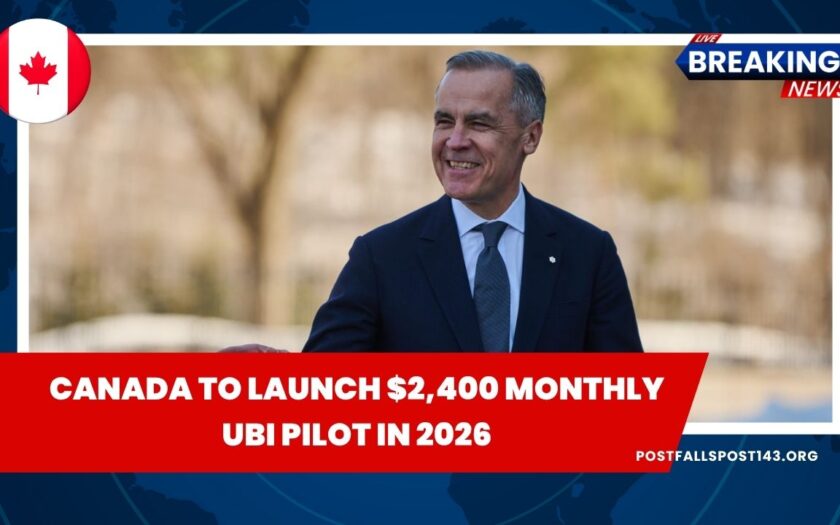Canada’s federal government is rolling out a groundbreaking Universal Basic Income (UBI) pilot in 2026, offering monthly tax-free payments of up to CAD $2,400 to eligible households.
This two‑year pilot aims to study how a guaranteed income influences financial security, job participation, health, and well-being, in a world facing rising automation and living costs .
Who Can Qualify for the Pilot?
The pilot focuses on low- and middle-income Canadians, primarily in Ontario and British Columbia, targeting diverse and underserved communities, such as Indigenous, newcomers, and people with disabilities. Here’s what preliminary eligibility looks like:
| Criteria | Requirements |
|---|---|
| Age | 18 years or older |
| Income | Under CAD $30,000/year for individuals |
| Residency | Must live in participating provinces (e.g., ON, BC) |
| Current Support | Not receiving equivalent federal income assistance |
| Demographics | Inclusive of disadvantaged groups |
Final, official criteria will be confirmed once enabling legislation is approved in early 2026.
Payment Structure & Schedule
Over a 24‑month period, participants will receive direct deposits with payment varying by household type:
| Household Type | Monthly Payment | Taxable? | Conditions |
|---|---|---|---|
| Single adult | CAD $1,200 | No | Income < $30,000/year |
| Couple (no children) | CAD $2,000 | No | Joint income < $50,000/year |
| Family with children | CAD $1,800–$2,400 | No | Based on number of dependents and income |
Participants may continue working, studying, or volunteering, as maintaining income won’t disqualify them.
Why Is Canada Testing UBI Now?
The initiative addresses several pressing social concerns:
- Reduce poverty and financial stress
- Simplify welfare & eliminate benefit overlap
- Encourage education, caregiving, and community work
- Provide data-driven guidance for future policy
This federal-level pilot draws lessons from the failed 2017 Ontario trial, improving with national funding, multi‑province sampling, and a two-year design.
What the Pilot Will Evaluate
Researchers and policymakers will assess:
- Labour trends: Will recipients quit, shift jobs, or pursue better work?
- Health improvements: Are stress, mental and physical health improved?
- Education engagement: Do participants return to schooling or training?
- Spending habits: How funds are allocated over time.
How Does This UBI Pilot Compare to Other Benefits?
Importantly, the UBI is non‑taxable and will not reduce eligibility for key programs like:
- Canada Child Benefit
- GST/HST rebate
- Provincial disability or housing assistance
This ensures the UBI supplements existing support, rather than replaces it.
Key Takeaways at a Glance
- Pilot starts in 2026, running for 2 years in ON and BC.
- Payments are up to CAD $2,400 per month, based on household.
- Designed to reduce poverty, support work, and gather evidence.
- No impact on current benefit eligibility and no requirement to work.
Canada’s 2026 Universal Basic Income pilot marks a bold shift in welfare policy. With tax-free payments up to $2,400 monthly, it aims to bolster economic security, simplify complex welfare systems, and offer invaluable data for future reforms.
As the project unfolds, insights on employment, health, and education will determine whether UBI could become a permanent fixture in Canada’s social safety net. Stay informed—this pilot could redefine income support in the years ahead
FAQs
When will I receive payments?
The pilot runs for 24 months from 2026, with monthly direct deposits. Final schedule depends on legislation and individual selection.
Can I still work and receive UBI?
Yes—participation is unconditional. You can work, study, or volunteer without affecting payments .
Does UBI affect other benefits I receive?
No. UBI is tax-free and won’t reduce eligibility for most federal or provincial programs.

